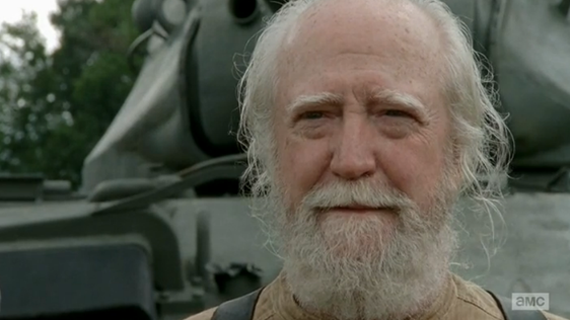I am in love with this new poem by John Piper and read by some of my favorite pastors/theologians today.
One of my professors, Dr. Lee, gets a little lyrical. I am thankful for him and the rest of the RTS DC staff!
3) Thinking About Thinking About Rap: Unexpected Thoughts Over Thanksgiving
Rap music is not my music. I do not come from a culture in which rap music is the medium of communication and I do not have the ear for it that I have for other forms of music. But I do admire its virtuosity and the hold that is has on so many, for whom it is a first and dominant musical language. I want that language taken for the cause of the Gospel and I pray to see a generation of young Gospel-driven rappers take dominion of that music for the glory of God. I see that happening now, and I rejoice in it. I want to see them grow even more in influence, reaching people I cannot reach with music that will reach millions who desperately need the Gospel. The same way that folks who first heard Bach desperately needed to hear the Gospel.
4) ‘Genderqueer’ rising: Colleges welcome kids who identify as neither male nor female
It’s an exercise that might seem superfluous given that Mills, a small and leafy liberal arts school historically referred to as the Vassar of the West, only admits women as undergraduates. Yet increasingly, the “shes” and “hers” that dominate the introductions are keeping third-person company with “they,” ”ze” and other neutral alternatives meant to convey a more generous notion of gender.
“Because I go to an all-women’s college, a lot of people are like, ‘If you don’t identify as a woman, how did you get in?’” said sophomore Skylar Crownover, 19, who is president of Mouthing Off! and prefers to be mentioned as a singular they, but also answers to he. “I just tell them the application asks you to mark your sex and I did. It didn’t ask me for my gender.”
5) Seven Thoughts on Pastors Writing Books
And one last thought for my fellow authors: let’s err on the side of under-promotion. I get it. I know we want our message to get out there. I know a certain amount of promotion is unavoidable (hey, I made two videos for my last book). But don’t pressure your friends to do you favors. Don’t make your book sound like the greatest thing since the five solas. Don’t pass along all the kudos about your stuff. “Let another praise you, and when they do, go ahead and retweet your awesomeness”—I don’t think that’s what Proverbs had in mind. Better to sell fewer books than to look like a bozo getting to the top of the best sellers list. Writing is a privilege, and that should make us humble not hucksters.
6) Federal Judge Declares Clergy Housing Exemption to be Unconstitutional
The Story: A federal judge has ruled that an Internal Revenue Service exemption that gives clergy tax-free housing allowances is unconstitutional. According to Religion News Service, the exemption applies to an estimated 44,000 ministers, priests, rabbis, imams and others. If the ruling stands, some clergy members could experience an estimated 5 to 10 percent cut in take-home pay.
7) The C.S. Lewis You Never Knew
The Christian icon whose image we see in bookstores may first seem distant. He spoke and dressed like a prim Englishman from another time. But his life was messy, contradictory and tarnished by thwarted dreams.
Perhaps Lewis still speaks to us because we when we look closer at his life, he’s really not that unusual.
We see ourselves.
8) How Can Jesus be the Only Way?
I greatly appreciate Michael Horton’s short and succinct answer to this question.
9) Stopping an Affair Before it Begins
Affairs do not begin with sex. Falling into bed with a man who is not your husband or a woman who is not your wife is simply one step in a long chain of events, one decision in a long series of poor decisions.
Note: FULL SPOILERS for the Season 4 mid-season finale “Too Far Gone” are below.
—–
The Season 4 mid-season finale was quite a blow to the gut, was it not? Any fan of the show has probably come to expect big episodes like this; any fan of the comic probably already knew this wasn’t going to end well. In this week’s episode, we saw the full-on return of the Governor, the death of Hershel, the destruction of the home Rick’s group had built for themselves, the death of the Governor’s new “daughter” as well as numerous other fatal casualties. Throughout all of this the writers of the show have one theme they want you to see come to the foreground of the show: “Can you come back? Are you ever too far gone?”
This theme has been subtly played out in numerous ways beginning in Season 3 with the death of Laurie and now finally culminating in this week’s episode. Now in Season 4, this theme has been explored further. Rick has come back from his fake phone-call answering self, but no longer wants to be responsible for any decisions. Hershel routinely counsels Rick on what it means to “come back” from almost losing yourself. We see Rick beginning to learn this lesson, and helping to ground others who start to become “too far gone,” people like Tyreese who would otherwise go into a berserk rampage. Rick is able to make the decision to cast out Carol, who becomes “too far gone” and emotionally desensitized to death.
Three weeks ago the viewers finally meet the Governor again, now wandering aimlessly after taking in the consequences of all that he had done. In our first episode with the Governor, it almost seemed like he was on the path of redemption. Could it be that even though he was so far gone – to the point that he would needlessly murder countless innocents – he could still come back given the appropriate motivations? Unfortunately, this was not the case as we saw in the next episode how the Governor – or “Brian” – is still completely crazy.
All of these aspects and this theme finally came to a head in this week’s showdown. How did this theme play out?
Can You Come Back?
The mid-season finale climaxes at the “negotiations” of Rick and the Governor. At first, the Governor genuinely seems peaceable and willing to let the prisoners live. Of course as the viewers we know the Governor is crazy and that he understands this “peace plan” will never work. Attempting to reconcile the situation, Rick pleads with Brian and his people for a different option. He wants to let them know that we can all “come back” and we don’t have to do these bad things to survive:
Is this what you want? Is this what any of you want?…Look I’ve fought him before, and after, we took in his old friends, they become leaders in what we have here! Now you put down your weapons, walk through those gates, you’re one of us. We let go of all of it. Nobody dies! Everyone is alive right now, everyone who has made it this far. We have all done worse kinds of things just to stay alive. But we can still come back, we are not too far gone! We get to come back. And I know, we all can change.
This emotional speech from Rick is the “gospel” of the Walking Dead. It is the good news that despite all of the brokenness of this apocalyptic world, despite all of the bad choices you make, you can still come back from those dark places and be a good person. You can do the right thing. Rick has proved it, and so have the people of his group.
Ultimately, the Governor is not willing to accept this gospel. Like the Pharaoh of Egypt, his heart is too hardened and no gospel will change that. The result of the Governor’s unwillingness to accept this gospel is sin and death. His beloved “daughter” dies, his group dies, people in Rick’s group die, and ultimately he dies.
We Have a Greater Gospel
What can we learn from this theme of the Walking Dead? I’d like to suggest four things we can all learn:
1. Sin Brings Death
James 1:15 tells us that “…sin when it is fully grown brings forth death.” The consequences of the Governor’s greed, selfishness and revenge could only bring forth death; the death of his loved ones, the death of those around him, and ultimately his own death. There is no way around the consequences of our actions. While we might not back outrageous decisions like the Governor in our own lives, our sin is outrageous in the sight of God and it comes with outrageous consequences. Because of our sin you, me and everyone around us dies. It is a fact of life.
2. We Have a Greater Gospel
The gospel of the Walking Dead is that you can come back from all of the bad things you have done and do the right thing. You don’t have to be a bad person. While this is certainly a great message, it is not the ultimate message. The ultimate message comes from Christ our King. The Christian God does not just say to us “You can shape up and be a better person.” Not at all! Instead, the Christian God acknowledges that we CAN’T fix ourselves, but shows us the way through Christ. God doesn’t abandon us, he gives us Christ to take on our penalty of death-bringing sin and show us the measure of self-sacrifice and love that should motivate our lives.
But when the goodness and loving kindness of God our Savior appeared, he saved us, not because of works done by us in righteousness, but according to his own mercy, by the washing of regeneration and renewal of the Holy Spirit, whom he poured out on us richly through Jesus Christ our Savior, so that being justified by his grace we might become heirs according to the hope of eternal life. The saying is trustworthy, and I want you to insist on these things, so that those who have believed in God may be careful to devote themselves to good works. – Titus 3:4-8
3. Every Other Gospel Fails
While Rick’s “gospel” sounds nice and is a good message, it ultimately fails. It does not change the heart, but only addresses topical behavior. The reason why the Governor and those who follow him do not want to believe Rick’s gospel is because their desires are completely disoriented. No amount of “we can be at peace and do the right thing” can reorient self-obsessed people like the Governor. What they need is not a change of behavior, but a complete change of heart.
We don’t come back from our bad choices and sin through self-effort and trying harder. We come back by being given a new heart in Christ.
Scripture tells us that when we place our faith and hope in Christ and not in ourselves, God removes our heart of stone and gives us a heart of flesh (Ezekiel 36:26). We don’t need behavior change, we need a heart change and that is exactly what God gives us.
4. Real Change Only Comes in Christ
The Walking Dead is only a TV show. It paints us a picture of a reality where despite everything you’ve done, it is still possible for you to change yourself. But our life isn’t a TV show, and we don’t live in a prison surrounded by walkers. The truth is, we can’t change ourselves. No matter how hard we try, we will always do bad things and offend a holy and righteous God. Thankfully, we don’t have a God who leaves us to our own devices. Christ came and showed us the way, he bought us with his blood, and he left us with the gift of the Holy Spirit. Now, under the motivations of God’s great love for us IN CHRIST, we are able to walk in obedience. In Christ, we are able to put on a new self, an image that is created after the likeness of God and is motivated by true righteousness and holiness (Ephesians 4:24).
Like Rick’s gospel (put down your weapons, surrender and walk through the gates), Christ’s gospel requires a surrender of self and obedience to his commandments. We have a greater message and a greater king than any gospel that is of this earth! Christ doesn’t just tell us, he shows us. He doesn’t leave us, he becomes one of us. He doesn’t leave us empty handed, he gives us himself and His Spirit to teach and guide us. We aren’t just individual survivors, but he brings us into a family to walk with us.
Praise be to Christ for giving us far more than we could ever deserve!
This is the conclusion in a series of three post.
Click here for the first post.
Click here for the second post.
—–
So Does God Really Desire for All to Be Saved?
As we have seen, it is biblically correct to say that God desires the salvation of all. It is biblical to speak of many of God’s desires, such as his desire for us to obey his commandments, cast out idols, etc. God wills and desires that I would be a faithful and loving husband, a committed disciple, and compassionate towards others. However, this is certainly not always the case.
We have also seen that there are certain things which God wills that necessarily and always come to pass.
If we bring these two concepts together, we begin to see how we can have a biblically faithful answer to the original question “Does God desire the salvation of all people?” What we begin to see is that God does, in a general sense, desire for the salvation of all people. It is good for him to do so, and it is therefore consistent with his character and goodness.
However, we also see that God in his providence, sovereignty and mercy brings about the actual salvation of specific individuals through his decretive will. God speaks life, and dead men come out of the grave (John 11:43).
It may be helpful for us to circle back to the original text of 1 Timothy Chapter 2, as well as Isaiah 45:22. Let us consider these verses:
This is good, and it is pleasing in the sight of God our Savior, 4 who desires all people to be saved and to come to the knowledge of the truth. 5 For there is one God, and there is one mediator between God and men, the man Christ Jesus, 6 who gave himself as a ransom for all, which is the testimony given at the proper time. – 1 Timothy 2:3-6
Turn to me and be saved,
all the ends of the earth!
For I am God, and there is no other. – Isaiah 45:22
Notice how in both of these passages there is movement from God’s desire that all be saved to the exclusiveness of his salvation. In both these passages there is an overarching inclusiveness in God’s heart for all people, but also an overwhelming sense of his exclusiveness in that there is no other apart from God. He desires all to be saved and provides a ransom for all peoples in a sense that there is no other way of salvation (Frame, Systematic Theology 352). The gospel will always be the most inclusive yet also the most exclusive message the world will ever know.
In the first post, I showed scriptural evidence for God’s desire for all people to be saved, for God’s omnipotence, and his sovereign election of sinners who will come to repentance. The most prolific and popular answer to these three facts is that God’s election depends on the foreknowledge of man’s free will. In the first post we saw how this conclusion of the facts is necessarily unbiblical and leaves us with all kinds of contradictions and problems.
In the second post, we saw how properly understanding God’s will leads us away from the previous unbiblical and contradictory answers and leads us towards a biblically sound answer that takes no liberties with the text.
Finally in this last post we conclude that God’s desired will for all people to be saved and his sovereign election of sinners based on his own choosing is in glorious harmony.
It is necessary for us to view this intersection of God’s sovereignty and his desires as a glorification of his character and nature. All God does is for his glory and that we might share in it, and in this understanding of his desired will and sovereign will we see how God is most glorified in us. Yes he desires all to be saved because it is good for him to do so. He is all-good and worthy of praise and glory. However, it is only through his mercy and grace that some come to faith by the working of his divine and decretive will through the work of His Spirit. Rather than debating with each other why God would desire all but only save some, we should instead be praising and giving thanks to him for his mercy and grace towards sinners through Jesus.
It is my hope and prayer that this answer to the question “Does God desire all to be saved?” is biblically faithful and God-honoring. All of my claims and answers in this text were not and should not be made based on metaphysical or philosophical assumptions, but rather simply on the text of God’s Word and what they teach. As John Piper says, there is no room in the Bible for human beings to have the ultimate power of self-determination.
I also acknowledge that the information in these posts probably raises as many questions as it answers, such as “Does God will evil?” and “What does it mean to say God can do anything?” Perhaps those will be addressed in future posts.
May God be glorified and worshiped for his grace and mercy towards us!
1) How Catholic Was John Kennedy?
Protestant leaders – from backwoods evangelists and radio preachers to prominent pastors such as Billy Graham and Norman Vincent Peale – warned the country would go to hell with a Catholic in the Oval Office.
“I’m getting tired of these people who think I want to replace the gold at Fort Knox with a supply of holy water,” Kennedy complained.
Against some advisers’ counsel, the candidate decided to directly confront the anti-Catholic bias with a televised speech to a group of Protestant ministers in Houston in 1960. It was like Daniel walking into the lion’s den, a journalist said at the time.
2) Are Your Books Your Shell Collection?
Good theology books are very important, but even the best, when left on the shelf, emphatically cannot replace what it means to know God. If your library doesn’t lead you to a deeper affection for Jesus, then it’s as useless as a collection of shells.
3) Does Your Facebook Rant Honor Everyone?
For the Christian, it’s not about winning a culture war. We win through how we engage our neighbors. Our honor should be on full display… even on Facebook.
4) C.S. Lewis: Scholar to the Common Man
Because of Lewis, I can have interesting theological discussions with people who never went to college. I’ve met troubled college students who found solace in Mere Christianity, four-year-olds who delighted in The Magician’s Nephew, 50-year-olds who love to ruminate over The Abolition of Man. The beauty of Lewis’s legacy is that it transcends class, country, and age. Even 50 years after his passing, he continues to teach us all.
5) A Table of Forgetful Remembrance
What gratitude would flow from this exercise? What thanksgiving? For those who have dined on the sacred, the Thanksgiving table becomes a feast of forgetful remembrance. For forgetful remembrance is grace—the taste of a homecoming remembered, the foretaste of a homecoming yet to come. On Thanksgiving years from now when our grandchildren gather to serve this most familiar of meals, may the table still be laid with the flavors of homecoming—may we still be serving the very grace that was served for us, in which all true thankfulness finds its source.
6) Ten Times its Wise to Hold Your Tongue
Ten reminders for when it is appropriate to hold your tongue.
7) Nothing More to Need: A Profile of Christian Courage
A short time ago my mother visited Elaine and asked how she deals with all that she has suffered. Elaine looked at her quizzically and said, “But I don’t feel like I have suffered.” She acknowledges that she has endured great challenges and great physical pain, but she cannot and will not see herself as essentially a sufferer. She knows Jesus Christ and him crucified and now waits patiently and joyfully for the day when her body, soul and mind—all she is—will be perfected in his presence. “He will wipe every tear from their eyes. There will be no more death or mourning or crying or pain, for the old order of things has passed away” (Revelation 21:4).






